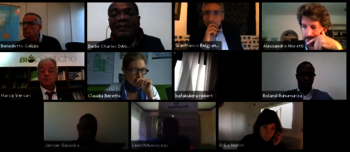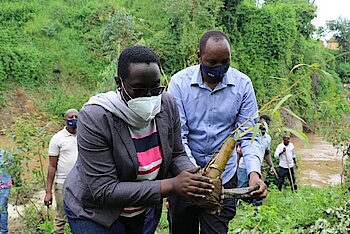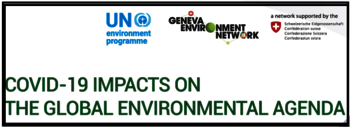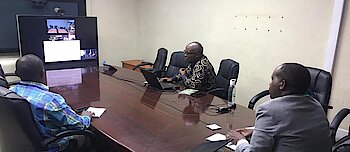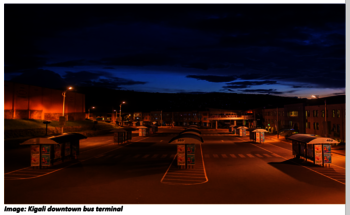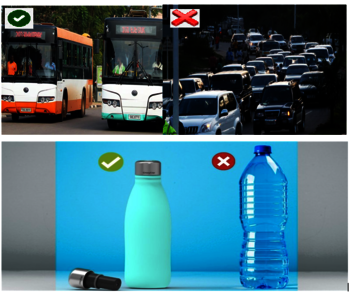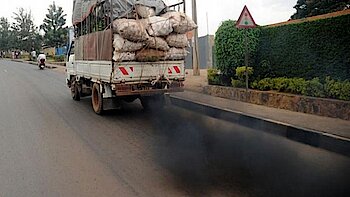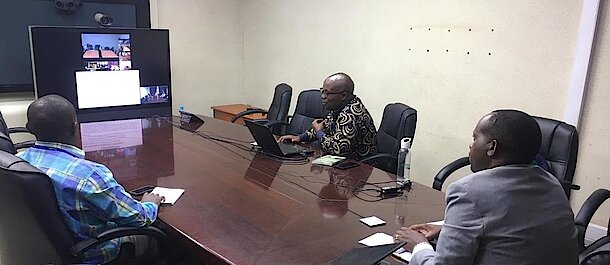
Assessment of Rwanda’s vulnerability to climate change was presented to local authorities
Rwanda Environment Management Authority (REMA), with the logistical support of Ministry of Local Government (MINALOC), hold a video conference with Province and District representatives from all over the country on 17th March 2020 to present the findings of the latest assessment of climate change vulnerability and discuss proper measure to implement the recommendations to reduce vulnerability to climate change.
Global changes in temperature and precipitation and the regional distribution of those changes are the primary drivers affecting climate-related natural hazards such as floods, landslides and droughts that stroke Rwanda in recent years with a devastating effect on the population. From the livelihoods of rural populations to food security in urban areas, the core gateway transport, communication, energy, health, water control, and institutional systems upon which populations depended failed during some cases.
The capacity and scale of adaptation to climate change depends on the vulnerability of people and natural systems to the impacts, where vulnerability is the susceptibility shaped by exposure, sensitivity and resilience.
The report presented to local authorities provides an examination at the country’s vulnerability by taking a detailed look at climate change vulnerability in the country’s 30 districts focusing on households using various indicators of household vulnerability. This report also updates REMA’s national level vulnerability assessment, first prepared in 2015, using a broad range of indicators of vulnerability that were selected during the preparation of the first assessment.
Using indicators of exposure and sensitivity to climate change as well as adaptive capacity, this report provides a comprehensive data-driven picture of climate change vulnerability facing Rwanda. Data was collected through a survey of 2,407 households in all districts of the country; data has been analyzed and presented at the district and provincial levels.
This assessment provides an understanding of the relative vulnerability to climate change of the four provinces, the City of Kigali and 30 districts based on a vulnerability index. The climate change vulnerability index uses numbers to assess jurisdictions, which have then been categorized as Low, Medium and High vulnerability.
Local authorities were urged to the report’s recommendations in detail and make commitments to take action and renew their commitments to fight the effects of climate change. Districts were encouraged to press ahead with the implementation of the ‘green economy’ plans within their District Development Strategies (DDS). Where possible districts should review their development strategies and planned projects and ensure their plans are informed by this report’s assessment of their climate vulnerabilities, and by future climate scenario.
The report also include an assessment of vulnerability at sectoral level whereby the report reviews new data collected using the National Framework for Vulnerability Assessment established in 2015 with 37 indicators of vulnerability. It analyses the changes that have taken place since data was first gathered in 2015.
The analysis reveals that increases or improvements in adaptive capacity are helping to reduce the vulnerability of the country in the face of climate change. However these improvements have been offset to some extent by increases in the impact of climate change. Recommendations are provided aimed at targeted action to reduce the sensitivity of the country to climate change factors and to build the adaptive capacity in order to reduce vulnerability and improve the level of resilience.
Topics
More posts
Rwanda-Italy Investors and entrepreneurs discussed how to explore Green Investment opportunities
This webinar is the third virtual dialogue that gather the Rwandan and Italian entrepreneurs, investors and institutions for exploring the green…
Rwanda’s NAP Project funded by GEF was launched
The Global Environment Facility (GEF)-funded $6 million project “Building the capacity of Rwanda’s government to advance the National Adaptation…
Rwanda Pledges emissions cut of 38% in its climate action plan by 2030
Rwanda as a signatory to the Paris Agreement under which countries are due to update or communicate their 2030 emission-reduction plans, it submitted…
The Geneva Environment Dialogues discussed the impacts of the COVID-19 on the global climate change agenda
The dialogues took place on Tuesday 19 May, 2020 from 9: 00 to 9:50 on Facebook live, as way of communicating in this time of COVID-19.
this session…
Assessment of Rwanda’s vulnerability to climate change was presented to local authorities
Rwanda Environment Management Authority (REMA), with the logistical support of Ministry of Local Government (MINALOC), hold a video conference with…
Coronavirus responses proves the World can act on Climate Change
The COVID-19 pandemic has provoked a global response unlike anything we have seen before. Governments have witnessed transformational changes that…
COP 26 postponed due to the disruption caused by COVID-19
This crucial climate summit is the 26th session of conference of Parties (COP26) to the UNFCCC and it was scheduled from 9-19 November 2020 in…
Be self-accountable to tackle Climate Change and save environment
Climate change has already begun to impact our planet in more ways than we can think. Temperatures continue to rise throughout the planet and we are…
Switching to electric vehicles is a mean to reduce greenhouse gases emissions and improve air quality in the City of Kigali
Over the last 150 years, human activities have greatly contributed to the increase of greenhouse gases in the atmosphere, which make the planet…
